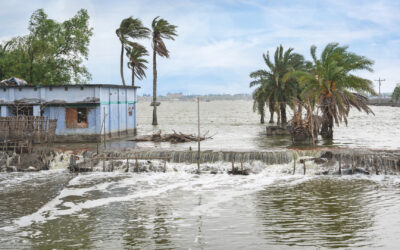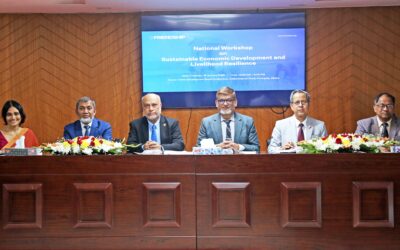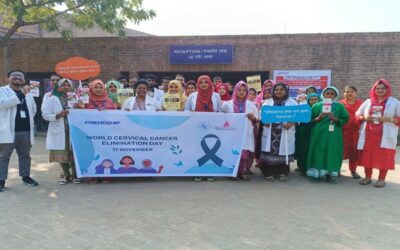Friendship’s mHealth app presented at the Humanitarian Innovation Accelerator Programme (HIAP)
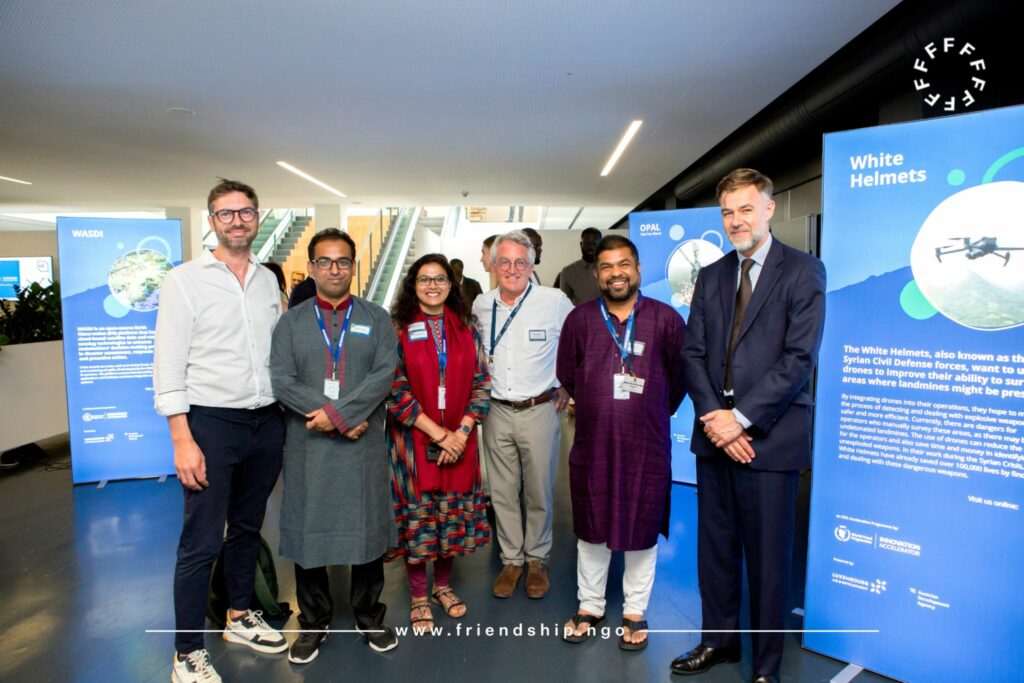
by Elisabeth Voyeux
July 6, 2023
Innovation is a process as old as human societies. It is through constant and ever-increasing innovations that humankind has developed to today’s degree of technical development. The process has been slow in the beginning. However, in the end of the 20th and, even more so, in the 21st century, an exponential growth in technology has occurred. This has resulted in high-tech based societies everywhere on the planet and has evolved alongside strong economic growth and the creation of immense wealth, especially in high-tech environments (for example in the Silicon Valley). A situation in stark contrast with the dire poverty and deprivation which a sizeable percentage of the human population still lives in today. But what happens when you bring technological innovations to the humanitarian sector for the benefit of the 339 million people living in such extreme conditions that they need humanitarian assistance in order to merely survive? This is exactly what the Humanitarian Innovation Accelerator Programme (HIAP) intended to highlight and promote.
The Humanitarian Innovation Accelerator Programme is run by the World Food Programme Innovation Accelerator and powered by the Government of Luxembourg and the Austrian Development Agency. It aims to support innovative solutions, developed by highly trained and committed professionals all around the world, to address the challenges affecting people in humanitarian crises on a global level. These high-tech innovations aspire to improve the daily lives of the most underprivileged populations, who are often otherwise bypassed by society’s technological transformation.
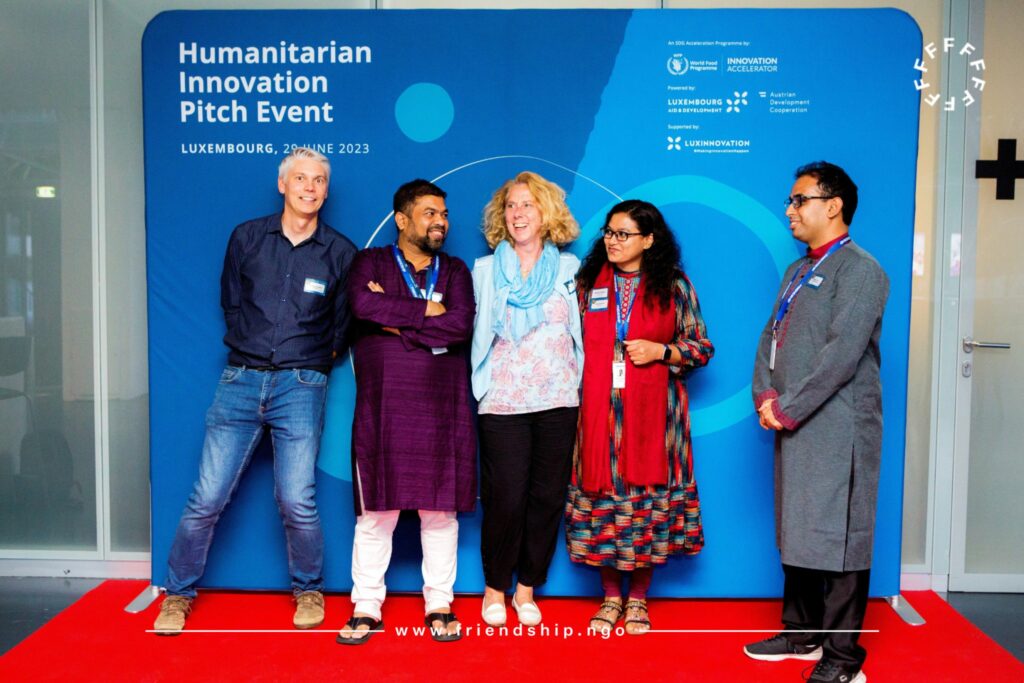
Despite not being one of the 16 selected teams (out of 379 submissions!), Friendship had the privilege to present the mHealth application, with a stand in the marketplace taking place around the Pitch Event that took place on the 29th of June in Luxembourg, in the presence of Franz Fayot, Luxembourg minister for development cooperation and humanitarian affairs who visited Friendship recently. Truly amazing, inspiring, and life-changing solutions were presented. The recording of the pitch even can be viewed here and the 16 innovations are presented here. In comparison, the quality of Friendship’s self-developed and owned mHealth solution has nothing to be ashamed of. Our digital healthcare application helps community health workers provide a range of health care services (diagnosis, family planning, limited curative care, ante-natal and post-natal care, etc.) to their beneficiaries (for more information on mHealth, please refer to Mobile medics – Friendship NGO or watch the video below). Friendship has been successfully using the mHealth application for several years, both in humanitarian action in Rohingya refugee camps next to Cox’s Bazar, and in remote, hard to reach areas in the chars of the North of Bangladesh, and it will continue to do so.
Being associated with this event allowed the Friendship team to take part in the networking session. Having such platform connecting NGOs and representatives of the private sector (for-profit companies) on the challenges faced in humanitarian crises helps exploring different perspectives of how scalable, innovative tech-based solutions can be designed to best respond to these challenges and to deliver aid in an optimised way. Some of the topics discussed were applicability, impact assessment, scaling-up, fundraising and growth, all topics that need to be assessed before launching a new solution.
The collaboration between the private sector and the NGO sector is becoming essential in this field as sharing knowledge and expertise between sectors will be the most suitable way to design effective and appropriate solutions for each specific humanitarian situation. NGOs, by working close to the beneficiaries, have a deep understanding and experience of the field and of people’s needs, while private companies have the necessary technical knowledge, the tools and expertise to develop the tech-based solutions.
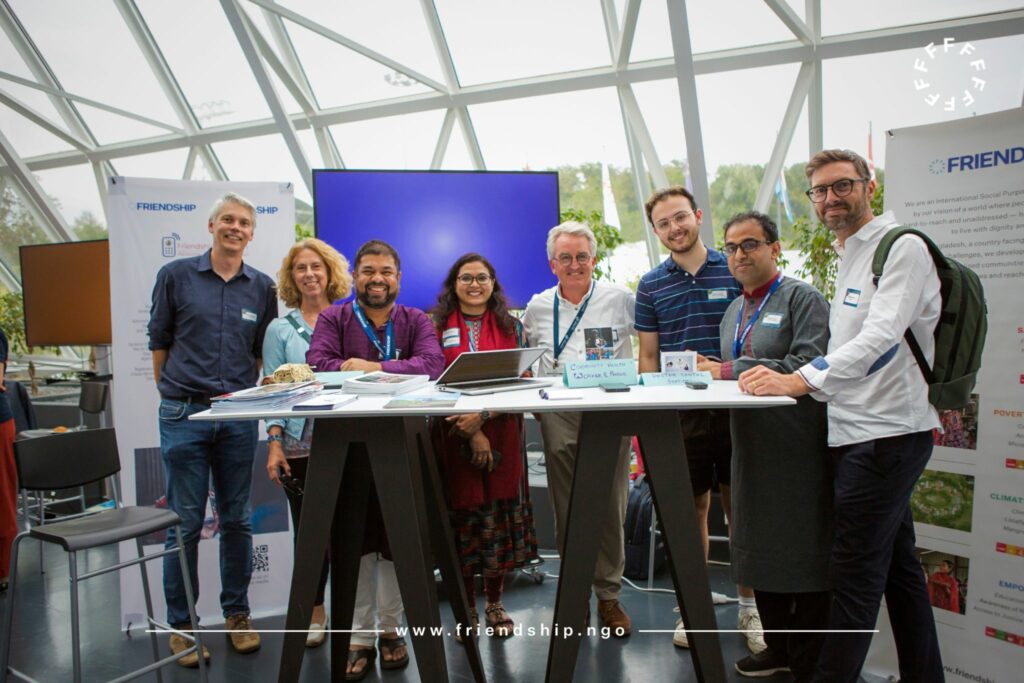
The previous day, a Friendship team visited the SES premises to gain insight of how satellites work and thus had the opportunity to better understand how this technology is transmitted on a global level. It was particularly interesting for Friendship to meet the parent company of SATMED, a satellite platform initiated by the Luxembourg Cooperation in partnership with SES which has been used for years in Friendship’s Hospital Ships and for the mHealth application.
The newly formed connections and the enriching discussions around the topic might be conducive to new partnerships or new high-tech solutions for Friendship in the future. For now, the hope is that all the new high-tech solutions presented at the Humanitarian Innovation Pitch event will contribute to alleviate the daily burdens of all their users thereby improving their living conditions.


